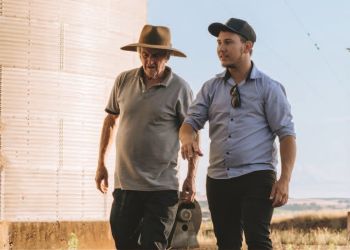By Nora Marino, Health Policy Scholar at NACCHO and current Master in Public Health candidate at the University of Minnesota School of Public Health The importance of incorporating the mental health needs of a community and individuals into emergency and disaster response is gaining attention. During and after a disaster, many people are not only at risk for developing physical injuries but also psychological injuries. The Medical Reserve Corps (MRC), which is a network of volunteers who provide a variety of essential emergency response services to improve the resiliency of their communities, can be essential when addressing these needs. If prepared, MRC units can confront emotional wounds, allowing community members to recover from a disaster more quickly.
The importance of incorporating the mental health needs of a community and individuals into emergency and disaster response is gaining attention. During and after a disaster, many people are not only at risk for developing physical injuries but also psychological injuries. The Medical Reserve Corps (MRC), which is a network of volunteers who provide a variety of essential emergency response services to improve the resiliency of their communities, can be essential when addressing these needs. If prepared, MRC units can confront emotional wounds, allowing community members to recover from a disaster more quickly.
One way MRC units are addressing mental health in their communities is by providing Psychological First Aid (PFA) training to volunteers and community partners. PFA is an evidence-informed approach to respond to the emotional and psychological needs of children, adolescents, adults, and families after a natural disaster or act of terrorism. This training was developed by the National Center for Post Traumatic Stress Disorder and provides practical information on how to provide comfort, safety, stabilization, and referral for an individual in distress. Many MRC units and other similar organizations hold PFA trainings regularly; the course can also be accessed online through NACCHO’s website.
Examples of how two MRC units provided support and utilized the PFA training when responding to a real-life event are as follows.
Oklahoma MRC
The Oklahoma MRC unit includes a Stress Response Team (SRT), which is comprised of licensed mental health professionals and other MRC volunteers interested in behavioral health, who complete required trainings. The SRT plays several different roles, including training MRC volunteers to support the mental health needs of survivors and first responders during a disaster, other examples include:
- Stabilizing or addressing psychiatric conditions in disaster survivors
- Providing Psychological First Aid
- Providing mental health support to first responders
- Monitoring, training, and supporting the mental health of the MRC unit and other disaster health care teams
- Collaborating with partners to assess a community’s mental health needs after a disaster to develop appropriate programs and interventions
In 2013, central Oklahoma experienced tornados, straight winds, hail, and flooding from a series of severe thunderstorms. Several shelters across the state were created and the SRT was deployed. The team, along with medical volunteers provided PFA and critical assistance to individuals affected by the storm.
Western Massachusetts MRC
The Western Massachusetts Medical Reserve Corps is comprised of 14 MRC units and covers four counties and 101 towns in western Massachusetts. In 2011, several communities in Western Massachusetts experienced a large EF3 tornado, a rare natural disaster for this region. The West Springfield MRC unit in the area assisted the residents of West Springfield to recover from the tornado. A shelter was set up to provide essential services to those impacted by the storm. In addition to using the PFA model to assess the emotional trauma from the tornado, the MRC unit recruited acupuncture therapists and therapy animals to provide stress relief to residents at the shelter.
Moving Forward
MRC volunteers are passionate and dedicated individuals and they often have full-time jobs, families, and other commitments. Limited funding does not always allow MRC units to create the necessary trainings and resources needed to comprehensively respond to emergencies. The MRC units interviewed provided recommendations on how MRC units can better respond to the mental health needs of a community during and following a disaster.
- Increase frequency of trainings and expand to a wider group of community-based organizations and professionals
- Recruit more MRC volunteers with language and cultural knowledge to meet the needs of the increasingly diverse population in our communities
- Recruit MRC volunteers who are behavioral health specialists
- Provide paid positions in MRC units such as a safety officer, trainer, and mental health educator
- Heighten awareness of and target resources to address the opioid crisis in communities
The consequences of disasters can be long lasting and difficult to reverse. Across the country, MRC units are recognizing the importance of responding to the mental health and emotional needs of communities during a disaster. It is important that MRC units are prepared to respond holistically to emergency events.
Does your MRC unit want to tell a story of responding to the emotional and psychological needs of an individual and a community after a recent disaster? Please submit your story to NACCHO’s Stories from the Field.
Do you offer unique trainings for your MRC volunteers or community-based partners to better prepare a community to address the mental health needs during and after a disaster? Please let us know in the comments section below.








